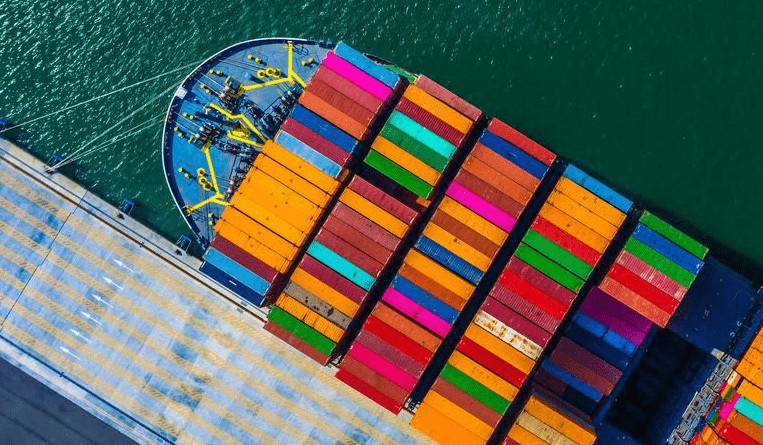Aside from the human impact of the coronavirus disease (Covid-19), various industries are also bracing for the economic effect of the outbreak as Chinese factories struggle to fully return to normal as the epidemic continues to spread.
Although many parts of life in mainland China have seemed to return to some semblance of normal, the coronavirus outbreak continues to rage elsewhere. Many Chinese towns and cities remained in lockdown until recently. While it’s still too early to determine the extent of the economic impact, industry players were certain that it’s going to be dramatic.
“It is not possible to close down huge swathes of the world’s factory and second-largest economy and not lose output,” said Richard Harris, the Hong Kong-based CEO of Port Shelter Investment Management and a pioneer of Asian investment management at JP Morgan and Citi.
Automotive industry to be hit hard
Business intelligence firm CRU said the automotive industry could be hard hit. Automotive is one of the most complex and highly integrated global supply chains; CRU says a disruption of China’s market has global implications expected to ripple through the industry.
“Aside from the human tragedy, the virus poses a real threat to the Chinese economy. The automotive industry will be hit hard, and we expect Chinese automotive production to be pushed further into recession in 2020,” the firm said in a statement.
Wuhan, in Hubei province, where the viral outbreak began, is one of the major auto production hubs in China, hosting production facilities for several major domestic and international manufacturers, including Honda, Nissan, Renault and General Motors, along with many auto parts suppliers.
CRU said that since the extended lunar holidays ended in mid-February, China's automakers are currently operating at just 32% capacity.
Hubei province accounts for 8.4% of Chinese light vehicle production, of which Wuhan itself accounts for 6.6%. Aside from Hubei, other regions with high infection rates such as Guangdong, Henan, Zhejiang, Hunan and others, account for 48.9% of auto production, based on 2019 figures.
Global supply chains at risk
China exports about US$70 billion of car parts and accessories globally, of which roughly 20% goes to the US. CRU said Shanghai and the surrounding provinces of Jiangsu, Zhejiang, and Anhui are the leading centres for the manufacture of auto parts, accounting for about 40% of total production.
“The automotive industry is one of the most complex and highly integrated global supply chains; the disruption of China’s market has global implications. A single car can have thousands of unique car parts, for many of which substitution is difficult. Various manufacturers around the world depend on auto parts from China in their supply chains,” CRU said in its statement.
Due to staff shortages there’s also congestion in Chinese ports, cargo terminals and roads.
“Manufacturer shutdowns in China and restrictions on the movement of goods raise the risk of disruption in the global supply chain, and this is already having a visible effect on production in Asia, Europe, the US, and elsewhere,” it added.
Hyundai has shut its assembly plants in South Korea, and the Nissan plant in Japan requires production adjustments due to shortages of Chinese parts. French automaker Renault has also suspended production at a plant in South Korea.
Electronics sector takes a hit
Meanwhile aside from the auto industry, tech companies are also experiencing the brunt of the coronavirus outbreak.
The lack of workers in several Chinese cities make it a struggle for businesses to kick-start production. Foxconn, the maker of iPhones in China, for example, struggled to get its assembly plants back to full capacity due to staff shortage, and only reopened fully reopened in early April. The Taiwanese company, according to a report in the Washington Post, is anxious to hit its target for a late 2020 iPhone launch.
“Companies outside of China are being affected as their Chinese suppliers are unable to deliver products and materials. To compound the issue, many suppliers outside of China rely on suppliers in China to fulfill their obligations to their customers,” a Dun & Bradstreet report, called the “Business Impact from the Coronavirus” said.
“If the outbreak continues, it is likely that the impact to businesses globally will grow and that companies around the world will experience strain as their Chinese partners in the service industry are unable to make payments on invoices,” the report added.
Recession fears fueled by Covid-19 outbreak
The Dun & Bradstreet report noted that the coronavirus is expected to take a toll on the Chinese economy, and that it will also trickle down to other economies.
“With the impact of the outbreak on the Chinese economy – which makes up about 20% of global gross domestic product (GDP) – the cascading effect might cause a drag of approximately 1 percentage point on global GDP growth if containment is delayed beyond the summer of 2020,” the report said.
Analysts said other economies that are growing more slowly than China – like Japan, Italy, South Korea and Germany – are all at risk of recession if the coronavirus continues to spread.
Former Federal Reserve chief Janet Yellen also warned that the possible squeeze in global growth could push the US into a recession. “We could see a significant impact on Europe, which has been weak to start with, and it’s just conceivable that it could throw the United States into a recession,” Yellen reportedly said, according to multiple reports.
Harris, of Port Shelter Investment Management, told Asia IP that a recession is almost certain.
“Global economic recession is inevitable,” Harris, who has 40 years of experience in investment and capital markets said. “That won’t start in China because the official statistics won’t allow it, but it will happen nevertheless. And, realistically, in China. You can’t interrupt a global supply chain which provides 16% of world exports – often components – without creating major global industrial disruption.”
Charlee C. Delavin







